Washington University in St. Louis will award five honorary degrees during its 157th Commencement May 18.
During the ceremony, which will begin at 8:30 a.m. in Brookings Quadrangle on the Danforth Campus, the university will bestow academic degrees on approximately 3,000 members of the Class of 2018.
Anne-Marie Slaughter, a renowned foreign policy expert, distinguished scholar, former top official at the State Department and author of a widely read article that sparked a national debate around women’s work-life balance, will deliver the Commencement address.
Slaughter will receive an honorary doctor of laws degree from the university.
The other honorary degree recipients and their degrees are:
- Eric D. Green, MD, PhD, director of the National Human Genome Research Institute (NHGRI) of the U.S. National Institutes of Health (NIH), who has helped to shape the field of genomics and its application to medicine, doctor of science;
- Chris Krehmeyer, president and CEO of St. Louis-based Beyond Housing, where he works to build and support thriving communities by helping provide affordable housing and create economic development, doctor of humane letters;
- Michael L. Lomax, president and CEO of the United Negro College Fund (UNCF), the nation’s largest private provider of scholarships and other educational support to African-American students, doctor of humane letters; and
- Francis G. Slay, St. Louis’ longest-serving mayor who, during his 16-year term, led a successful downtown and city neighborhood revival, doctor of humane letters.
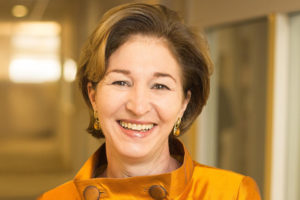
Slaughter is president and CEO of New America, a nonprofit, nonpartisan civic platform dedicated to renewing America in an age of rapid technological and social change.
She is also the Bert G. Kerstetter ’66 University Professor Emerita of Politics and International Affairs at Princeton University, where she has been on the faculty since 2002.
From 2009-11, she served as the first female director of policy planning for the State Department, reporting directly to Secretary of State Hillary Clinton. It was a position she referred to as her “dream job.”
When she accepted the position, knowing she would need to be away from her husband and two young boys during the week, she was confident she could juggle the demands of her position in Washington with the responsibilities of her family in Princeton, N.J.
But then life intervened, and parenting needs led her to leave the State Department after her initial two-year commitment and return to an academic career that gave her more family time.
The reactions to her choice to leave Washington because of her children led her to question the feminist narrative she grew up with. Her subsequent 2012 article for The Atlantic, “Why Women Still Can’t Have It All,” quickly became the most-read article in the magazine’s history and sparked intense national debate on the continued obstacles to full male-female equality.
She followed up the article with “Unfinished Business: Women, Men, Work, Family,” which was named one of the best books of 2015 by The Washington Post, The Economist and National Public Radio. She has written or edited seven other books.
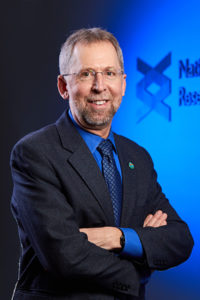
Green has been at the forefront of genomics research during his 30-plus year career as a physician-scientist. This included playing a major start-to-finish role in the Human Genome Project, the international effort from 1990 to 2003 that mapped and sequenced the human genome — an achievement that has been compared to the moon shot.
Beginning with the launch of the Human Genome Project, Green directed a highly productive research program at the forefront of efforts to map, sequence and understand genomes (the DNA blueprint of all life forms).
These efforts eventually blossomed into a novel research initiative that provided some of the first detailed glimpses into the similarities and differences among animal genomes, which yielded important new insights about genome structure, function and evolution.
In addition, his work in human genetics led to the identification and characterization of several human disease genes, including those implicated in certain forms of hereditary deafness, vascular disease and inherited peripheral neuropathy.
A St. Louis native, Green earned a bachelor’s degree in bacteriology from the University of Wisconsin-Madison in 1981 and his medical and doctoral degrees at Washington University School of Medicine in 1987.
Following clinical training, he joined the Washington University faculty as an assistant professor of pathology and genetics and as a co-investigator in the Human Genome Center, one of the first groups funded to pursue the goals of the Human Genome Project.
He has served as director of the NHGRI since 2009.
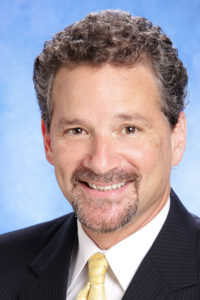
Since graduating from Washington University in 1986 with a bachelor’s degree in urban studies in Arts & Sciences, Krehmeyer has been instrumental in making communities better places to live.
Under Krehmeyer’s 25-year leadership, Beyond Housing delivers its mission by leading a comprehensive community building initiative called 24:1, producing and managing service-enriched affordable rental housing, operating a Homeownership Center and leading the region’s foreclosure intervention work.
The 24:1 initiative is taking on multiple challenges formed over decades in north St. Louis County. The name 24:1 was chosen by the community and represents the 24 municipalities in the Normandy School District with one vision for successful children, engaged families and a strong community.
Krehmeyer has said that Beyond Housing, which is a NeighborWorks America organization, aims to meet communities where they are. Through its “Ask, Align, Act” approach, the voice of the people drives the organization’s efforts.
The Ethical Society of Saint Louis named Krehmeyer its 2003 Ethical Humanist of the Year, and in 2011, the NAACP named him one of St. Louis’ Most Inspiring. In both 2011 and 2012, the St. Louis Business Journal named him one of the Most Influential St. Louisans.
Krehmeyer, who has been an adjunct faculty member at Washington University, received FOCUS St. Louis’ highest honor, the Leadership Award, during its What’s Right with the Region! awards ceremony in 2014.
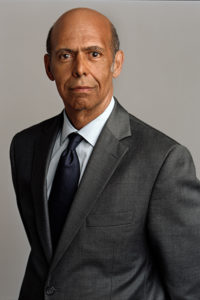
Under Lomax’s 14-year leadership, UNCF, which is known by the motto “a mind is a terrible thing to waste,” has raised more than $2.5 billion and helped more than 92,000 students earn college degrees and launch careers.
He oversees the organization’s 400 scholarship programs, which award 10,000 scholarships a year worth more than $100 million.
He also launched the UNCF Institute for Capacity Building, which helps UNCF’s 37-member historically black colleges and universities become stronger, more effective and more self-sustaining.
Before joining UNCF in 2004, Lomax served for seven years as president of Dillard University in New Orleans, where he implemented several initiatives to strengthen the school.
A native of Los Angeles, Lomax enrolled at Morehouse College at 16. He graduated magna cum laude in 1968 with a bachelor’s degree in English.
He went on to earn a master’s degree in English literature from Columbia University in 1969 and a doctor of philosophy in American and Afro-American literature from Emory University in 1984.
Lomax, who serves on the boards of Teach For America and the KIPP Foundation, began his career as an English professor at Morehouse while holding several positions in the 1970s as an Atlanta public servant.
In 1978, he ran for public office and was elected to the Fulton County Board of Commissioners. Two years later, he was elected chairman of the board, becoming the first African-American to lead a major county government in Georgia. He served as board chairman for 12 years.
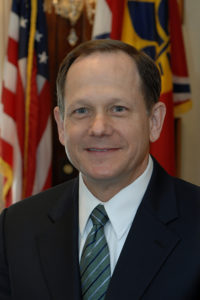
Slay, who served as St. Louis’ 45th mayor, completed his historic term on April 18, 2017.
During his tenure, Slay led a downtown and city neighborhood revival that resulted in billions of dollars of private, public and philanthropic investment in historic renovations to commercial and residential structures, in advancement of cultural institutions, in improvements to streets, bridges and other city infrastructure, and in the creation and restoration of parks, trails and recreational facilities.
In a precedent-setting partnership with the National Park Service, Slay put in motion the CityArchRiver effort to design and construct $400 million in improvements to the Gateway Arch grounds.
Also under Slay’s leadership, over 30 public charter elementary, middle and high schools, enrolling approximately 11,000 students, have been created in the city, and the Saint Louis Public Schools earned full accreditation by the State Board of Education for the first time in 17 years.
The mayor’s program to reduce children’s exposure to dangerous lead paint won national acclaim, as did St. Louis’ plan to end chronic homelessness.
In June 2014, Slay challenged a Missouri constitutional amendment banning same-sex marriage by helping same-sex couples obtain city marriage licenses and hosting their weddings in his City Hall office.
A Quincy College graduate with a bachelor’s degree in political science, Slay earned a juris doctorate from Saint Louis University School of Law. He has returned to practicing law with the Spencer Fane law firm.